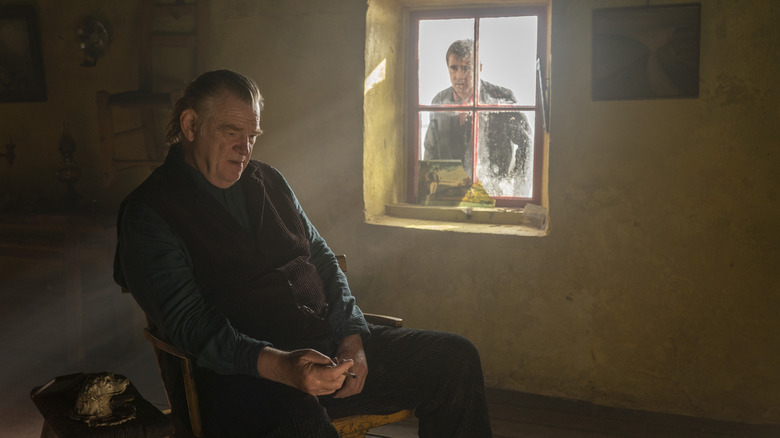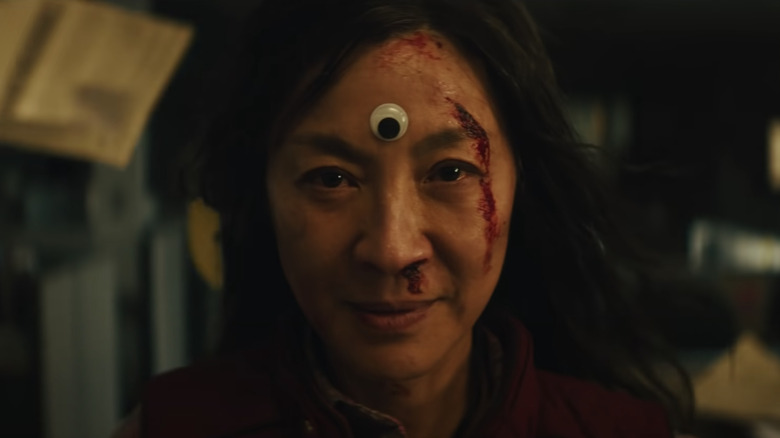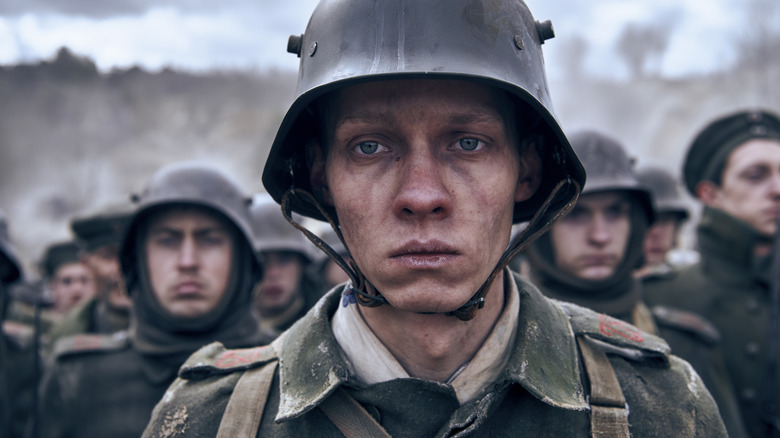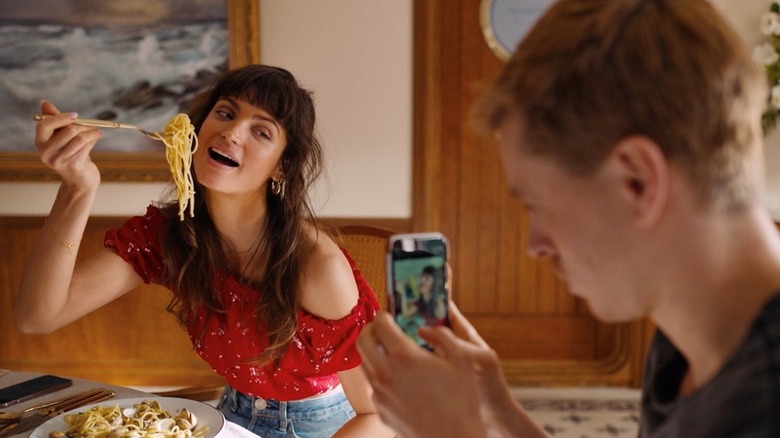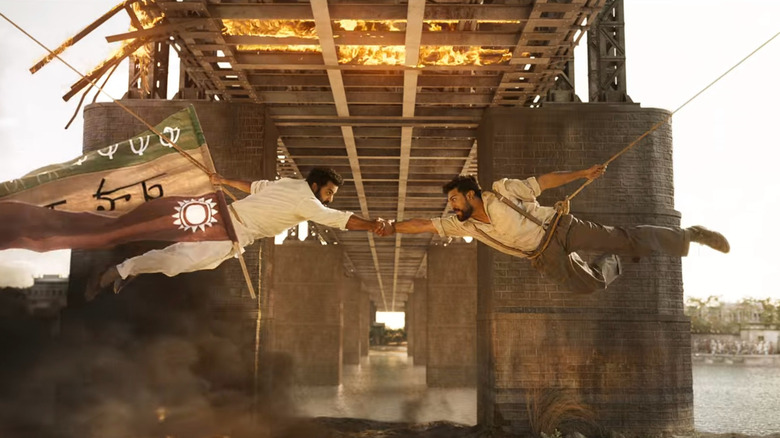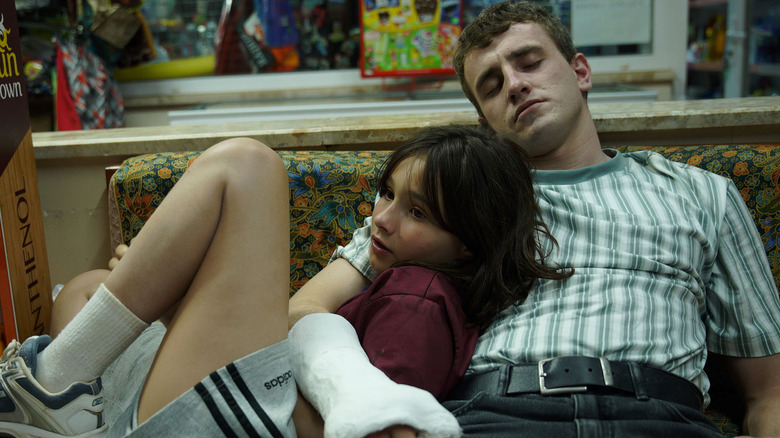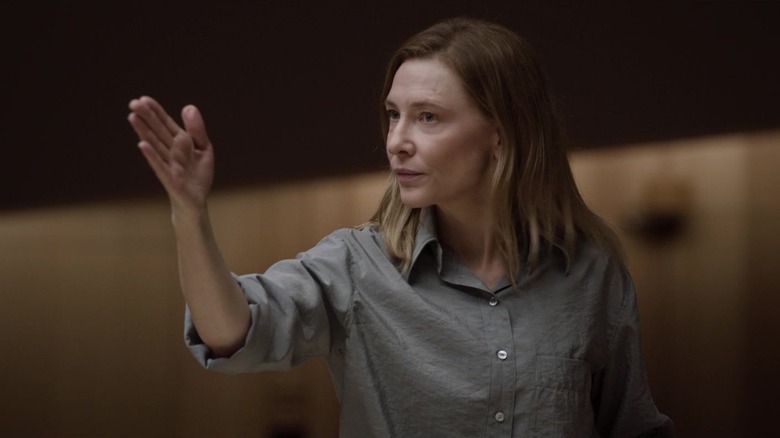Did The 2023 Oscar Nominations Get Best Picture Right? An Investigation
(Welcome to Did They Get It Right?, a series where we take a look at an Oscars category from yesteryear and examine whether the Academy's winner stands the test of time.)
Another year, another round of Oscar nominations for us to fight about. We've spent the last several months guessing what will ultimately make the nominations slate and hoping our favorites wind up on the list, and now all of the guesswork is over. The Academy has announced their 2023 nominees, and we who have no say in the results get to either praise them or hate them for those selections (most likely hate them). This year that Academy did a fine job with their Best Picture nominees. Not exemplary, not horrendous, just ... fine. A couple of surprises, but mostly, it was a slate of titles we have been seeing time and time again this awards season.
When I do these "Did They Get It Right?" pieces, I am usually speaking about them from a historical perspective and how their selection of nominees and winners age over time. Obviously, looking at the here and now with hindsight is impossible, so this will be infused with quite a bit of my own personal feelings about what should and shouldn't have been nominated. Now, I am no fool to think the Academy's 10 Best Picture nominees would line up exactly with my own, but when it comes to the margins, I have my preferences. Let's take a look at the list and see how well they did.
The foregone conclusions
Throughout this awards season, six titles kept showing up all around at different awards shows and critics groups: "The Banshees of Inisherin," "Elvis," "Everything Everywhere All at Once," "The Fabelmans," "TÁR," and "Top Gun: Maverick." So, it comes as no surprise that all six films ended up nominated for Best Picture, and out of these six, I see "The Banshees of Inisherin," "Everything Everywhere All at Once," and "The Fabelmans" as the three films that will actually be vying to win that top prize.
In my opinion, "Everything Everywhere All at Once" is the presumed frontrunner this year, and its whopping 11 nominations certainly does a lot in pushing it ahead. This film has captured the hearts and minds of just about everyone who sees it. Admittedly, I am not one of those people and often feel on an island in regards to the Daniels' followup to "Swiss Army Man" (a film I vastly prefer), but the Academy is a reflection of a consensus and not my own personal taste. "The Banshees of Inisherin" isn't that far behind though with nine nominations, which I see as running in second place, and I wouldn't be shocked to see it actually take home the award. Because the Academy uses a preferential ballot, I could see it racking up a ton of points as many people's second place film.
These are the titles that really need to time to determine how we feel about them. We know them as major awards players, and often, how we think they will perform at the Oscars clouds how we think we will feel about the movies a decade from now. Their legacy right now is whether they win and not whether they last, which is ultimately the more important factor.
The late surge
No film has had a better week than "All Quiet on the Western Front," Edward Berger's adaptation of the classic World War I novel by Erich Maria Remarque. While the film was certainly thought of us a major contender in the Best International Feature category, it wasn't until the film earned a staggering 14 nominations from the BAFTAs that the idea of it being a major Oscar player was more than just a pipe dream. Obviously, there were signs of strong support when it made the shortlists for many below the line categories, but it is always a struggle to fully believe that a film not in English will be so universally beloved by the Academy, given their history of neglect for international cinema.
Though the film isn't in English, "All Quiet on the Western Front" has a couple of things going for it that is catnip for the Academy. They love a war film. If there is a big, emotional war film released in a given year, the chances are pretty strong that they will go for it. Remember "Hacksaw Ridge"? That film got Best Picture and Best Director nominations even though its director is the notorious Mel Gibson. "1917," "Dunkirk," "American Sniper," and so many more round out a list of examples. The Academy just can't get enough of war films. "All Quiet on the Western Front" has an even more entrenched history with the Academy, as the original adaptation of the novel won the third ever Best Picture award.
This is the part where I say I haven't seen "All Quiet on the Western Front" yet, but based on its BAFTAs success, it doesn't shock me to see it well represented here. Whether or not it can join the ranks of the firmly established contenders to win is another matter.
What slid in
As is the case with every year, a number of titles end up fighting for the last remaining spots after the foregone conclusions set up their real estate. This year, they went to the big, the small, and the Palme. For the big, James Cameron's "Avatar: The Way of Water" managed to make the 10, even though its four nominations is a significant step down from the nine the first film received back in 2009. The Academy has been somewhat resistant to big blockbuster entertainments recently, and I thought there was a strong chance "Top Gun: Maverick" would be the sole representative from that category. Happy to see I was wrong as "The Way of Water" would have made my personal 10.
On the smaller side is Sarah Polley's "Women Talking." After its festival run, this was poised to be one of the heavy hitters, but as the critics groups and awards bodies started voting, the enthusiasm for this tale about rampant sexual assault in a Mennonite community continuously underperformed, especially on a performance level. It weathered the storm and made it in, making it the only Best Picture nominee directed by a woman, and based on the fact that it only has two nominations overall, it made it in by the skin of its teeth.
For me, the biggest surprise of the bunch was "Triangle of Sadness," which similarly had faded from view after winning the Palme d'Or at Cannes, but it ended up with three major nominations, including Best Director. I thought the vomit-filled satire's best chance for a nomination was actually one it ended up not getting: Dolly De Leon for Best Supporting Actress. Like "All Quiet on the Western Front," this nomination speaks to the Academy's growing international membership, and I'm happy to see it.
A very white, very male list
This slate of Best Picture nominees is two things: very male and very white. Only one film here was directed by a woman and one was co-directed by a person of color, which is also the only film not starring a white person. While this is nothing new for the Academy, they cannot excuse a lack of options for the lack of diversity as they could in years past. You had perfectly viable candidates like Gina Prince-Bythewood's "The Woman King" not only not get a Best Picture nomination but get shut out entirely. Charlotte Wells' "Aftersun" could only get in for a well-deserved nomination for Paul Mescal for Best Actor. On the international side, Alice Diop's exemplary "Saint Omer" is nowhere to be seen, even in Best International Feature. That film wasn't particularly close at a Best Picture nomination, but the option was open to those who wanted to take it.
The film I am most sad to not see in the 10 nominees is S.S. Rajamouli's "RRR." The movie did manage to earn a Best Original Song nomination for "Naatu Naatu" (which I cannot wait to see performed at the ceremony), but that was it. Because the film was not India's submission for Best International Feature this year, I was hoping the rest of the branches would rally behind it and actually make it happen. I thought a Rajamouli Best Director nomination was even more likely. Alas, it was not meant to be.
While hindsight is difficult right now, the lack of diversity here is immediately apparent and will only look worse as the years go on. With most of the world "getting back to normal" regarding the pandemic, I guess that also meant going back to their old ways and old voting habits too.
What I would have nominated
Half of the actual Best Picture nominees would have made my own personal 10 nominations as well, which is a pretty good percentage. "The Fabelmans," "TÁR," "Avatar: The Way of Water," "The Banshees of Inisherin," and "Top Gun: Maverick" all find their way onto my ballot, and "The Fabelmans" would be my pick for the winner when it is all said and done. As for the remaining five, they are a mix of things that were on the Oscars' radar, and some that stood absolutely no chance at a nomination, which is just sad for the Academy.
I mentioned a couple of them already in the previous section. "RRR," "Aftersun," and "Saint Omer" would easily take up a couple of spaces. I did not have more fun in a theater all year than I did the several times I saw S.S. Rajamouli's historical fiction action epic, and I was not left more emotionally devastated by two films more than the films by Charlotte Wells and Alice Diop, each with singular, daring takes on parenting.
The remaining two slots would go to one film that did decently with the Oscars and one that never even in the conversation. First, Damien Chazelle's "Babylon," which actually managed to earn three nominations, is pure, vibrant cinema of the highest order, and I suspect if I come back to do a "Did They Get It Right?" about this year in a decade that this will be the movie we're all surprised was so underrepresented. My last Best Picture slot would go to Joanna Hogg's haunting, gorgeous "The Eternal Daughter," which made less of a blip on people's consciousness than her equally phenomenal "The Souvenir" films that also couldn't capture the Academy. We need more on the Joanna Hoggwarts Express.
Trying to predict the future
Time will be the only arbiter with how we think about this year's Academy Awards, but I am going to try to look into my crystal ball and see whether or not this year will be looked at favorably. As I've already mentioned, the lack of women or people of color represented within this slate will be looked down upon, especially after the last few years of "Parasite," "Nomadland," and "The Power of the Dog" showed that some kind of progress was being made. But as for the films we did get, I think it will be looked at as a mixed bag.
Out of all the nominees, I think the one that will age the best within film circles will be Todd Field's "TÁR," which will most likely win Cate Blanchett her third Oscar. That is the kind of titanic, thoughtful, and ambitious character study that will constantly allow people to peel back layer after layer and debate what the film is trying to say. I can see so many of us looking back in confusion as to how it wasn't a juggernaut beyond Blanchett's performance, much in the way we see Paul Thomas Anderson's "There Will Be Blood."
I don't know how "Everything Everywhere All at Once" will age as a frontrunner or winner, as it is such a wacky, hyperactive movie ensconced in what is popular today. I could see it being a nostalgic favorite for many and a bit of a conundrum for new viewers who didn't experience the age of the multiverse. And obviously, Steven Spielberg always ages like a fine wine. In the end, I suspect we look back at this year's Oscars with some surprising delight and utter confusion, as we do with most years.
